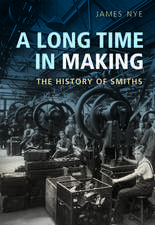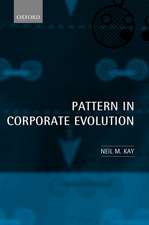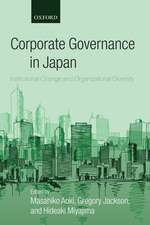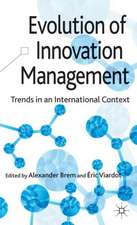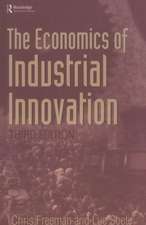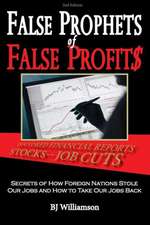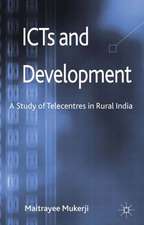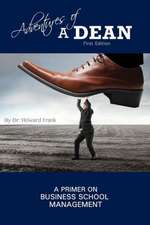As Time Goes By: From the Industrial Revolutions to the Information Revolution
Autor Chris Freeman, Francisco Louçãen Limba Engleză Paperback – 7 mar 2002
| Toate formatele și edițiile | Preț | Express |
|---|---|---|
| Paperback (1) | 476.35 lei 31-38 zile | |
| OUP OXFORD – 7 mar 2002 | 476.35 lei 31-38 zile | |
| Hardback (1) | 1202.47 lei 31-38 zile | |
| OUP OXFORD – 15 feb 2001 | 1202.47 lei 31-38 zile |
Preț: 476.35 lei
Preț vechi: 554.62 lei
-14% Nou
Puncte Express: 715
Preț estimativ în valută:
91.15€ • 95.17$ • 75.44£
91.15€ • 95.17$ • 75.44£
Carte tipărită la comandă
Livrare economică 24-31 martie
Preluare comenzi: 021 569.72.76
Specificații
ISBN-13: 9780199251056
ISBN-10: 0199251053
Pagini: 424
Ilustrații: 34 figures; 60 tables
Dimensiuni: 156 x 234 x 23 mm
Greutate: 0.64 kg
Ediția:Revised
Editura: OUP OXFORD
Colecția OUP Oxford
Locul publicării:Oxford, United Kingdom
ISBN-10: 0199251053
Pagini: 424
Ilustrații: 34 figures; 60 tables
Dimensiuni: 156 x 234 x 23 mm
Greutate: 0.64 kg
Ediția:Revised
Editura: OUP OXFORD
Colecția OUP Oxford
Locul publicării:Oxford, United Kingdom
Recenzii
Review from previous edition This major contribution to economic history is the most impressive and convincing attempt I know to apply the concept of the 'long waves', a basic rhythm of historical development in the era of capitalism, to the entire stretch from eighteenth-century Lancashire to twenty-first-century Silicon Valley. It is also a call for economic history to escape from the handcuffs of narrow retrospective econometrics to the freedom of its vocation: understanding and explaining secular historical transformations.
. . . a true story has to make sense, to be plausible and persuasive. Cleverness is less useful than sense and sensibility. The inability to see this, to avoid showing off, has been the death of more than one pyrotechnic schema. This book is testimony to knowledge and good sense. Such virtues are rare and that much more valuable.
This book is a thought-provoking work that is valuable for more than its detailed account of the technological revolutions that shape our economy today. By directing our attention to a perspective outside the current wave, it shapes our thinking about events inside the current wave.
. . . a true story has to make sense, to be plausible and persuasive. Cleverness is less useful than sense and sensibility. The inability to see this, to avoid showing off, has been the death of more than one pyrotechnic schema. This book is testimony to knowledge and good sense. Such virtues are rare and that much more valuable.
This book is a thought-provoking work that is valuable for more than its detailed account of the technological revolutions that shape our economy today. By directing our attention to a perspective outside the current wave, it shapes our thinking about events inside the current wave.
Notă biografică
Chris Freeman is Emeritus Professor at the University of Sussex and was the founder and former Director of SPRU (1966-81). SPRU has become one of the leading world centres for research on technical change. After war-time service in the Manchester Regiment and experience in market research, Chris Freeman became a Research Fellow at the National Institute of Economic and Social Research (1959-66), and later a Visiting Professor at the University of Limburg, Maastricht.Francisco Louçã is a Portuguese Member of Parliament, serving in the Economic and Budgetary Commission. He obtained his Ph.D. in Economics from the University of Lisbon, under the supervision of Chris Freeman. His thesis, entitled Turbulence in Economics has since been published in both English and Portuguese (Edward Elgar/Afrontamento, 1997).





